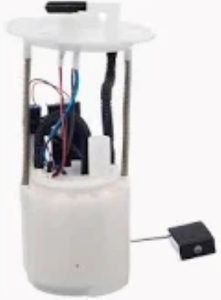Fuel pump efficiency has a great relation to a vehicle's MPG because it always permits consistent fuel delivery at optimum pressure. In the case of an efficiently running Fuel Pump-which, for standard vehicles, falls in a range of about 40-60 PSI-it maintains the perfect air-to-fuel ratio required for complete combustion. The balanced combustion process allows the engine to produce power without consuming extra fuel, thus directly contributing to better fuel economy. Studies have shown that up to a 10% drop in fuel pump efficiency can lead to as much as a 5% reduction in fuel mileage, hence higher fuel costs overtime.
A weak fuel pump that delivers inconsistent pressure might result in the running lean of an engine, where too little fuel is fed compared to air. This forces the car to work harder during acceleration or under heavy load, which may lower MPG. Poor fuel delivery not only reduces fuel economy but also can further lead to incomplete combustion, resulting in higher emissions and potential damage to the catalytic converter, one of the more expensive components to replace.

Clogged fuel filters or failing pressure regulators further reduce pump efficiency, which makes the pump work harder and generally consume more power. In the process, this will lower overall MPG. Inefficient fuel pumps can then overheat due to their heavier workload and wear out faster. Such a scenario may also bring engine misfires or hesitation. Regular maintenance-which includes replacing fuel filters every 15,000 to 30,000 miles-helps maintain pump efficiency and supports consistent MPG.
High-quality fuel and avoiding low fuel levels in the tank also help in pump efficiency. The fuel cools the pump, and driving with less than a quarter of a tank makes overheating of the pump probable. As mechanics advise, keeping the tank at least 25% full will maintain pump efficiency. In general, fuel overheating can lower MPG as much as 3%.
Understanding the importance of the fuel pump's efficiency in achieving optimal MPG, drivers can keep their vehicle at performance while reducing fuel expenses. To grasp a better understanding of maintaining an efficient Fuel Pump, proper maintenance of the components making up the fuel system is highly important.